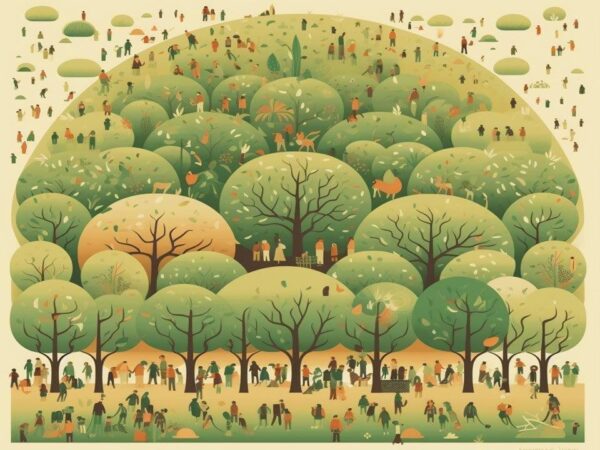
Tu B’Shevat
Tu B’Shevat also know as Chag Ha’llanot (Holiday of the trees)
Tu B’Shevat is a minor Jewish holiday that is celebrated on the 15th of the Hebrew month of Shevat. It is considered the new year of trees as it honors the budding of new bulbs of spring blossoms from the fruit trees.
God had given laws to Israel to respect the growth, production and enjoyment of the fruits from the trees. According to Leviticus 19:23-25 you were not to eat of the fruit until that tree’s fifth season of production. For the first three years you were not eat from it, and in the fourth year you were consider what it produced as holy, therefore it was to be made as an offering at the Tabernacle or Temple services. It was then in the fifth year that you could finally enjoy the fruit.
How is this holiday celebrated in Israel today? They plant trees. Planting trees is another way to confirm one’s possession of the land, and make roots run deep into the ground, investing into it with the expectation of a great harvest. “And when you shall come into the land, and shall have planted all manner of trees for food…” Leviticus 19: 23.
The almond tree is a symbol of Israel (the priesthood), a symbol of spring, a symbol of hope and resilience. When we consider the menorah and the tree, we see a similar shape with branches extending upwards. We can think of the tree branches as drawing in an energy and strength from heaven. And on that menorah we have almond buds as a possible reminder of Aaron’s budding almond staff that put to rest anyone who wanted to take authority away from the lineage of the priesthood through Aaron.
How beautiful that God uses an almond tree, in Jeremiah to prove His unwavering care over His word to fulfil it (Jerm. 1:11-12).
How can we celebrate this festival? It begins tonight, Wednesday and continues through to tomorrow evening. Why not enjoy some (or at least one) of the seven species that God pointed to as a confirmation of His blessings. According to Deuteronomy 8:8 these are: wheat, barley, grapes, figs, pomegranates, olives and date (honey). What a festive way to celebrate God’s goodness. Take a moment over these next 24 hours and give thanks to God for all His provisions.
You might want to recite this blessing if this is the first time, this season that you are eating a particular fruit.
ברוך אתה ה’ א להינו מלך העולם, שהחינו וקימנו והגענו לזמן הזה.
Barukh atah Adonai Eloheinu melekh ha-olam, she-hechiyanu v’kiy’manu v’higi’anu la-z’man ha-zeh.
Blessed be You, Lord God King of the universe, the One who has kept us alive and sustained us so that we could reach this moment.
And don’t forget to give thanks AFTER eating, to prove that you truly are thankful even when your belly is full!
Barukh atah Adonai Eloheinu melekh ha-olam, borei n’fashot rabot v’chesronan, al kol ma she-barata, l’hachayot bahem nefesh kol chai, barukh chei ha-olamim.
Blessed be You, Lord God King of the universe, the One who created so many different living things, all needing each other, to make one Life interwoven through them all, as one soul.
Blessed be the Life of all worlds.
(traditional Rabbinical Hebrew prayer)

Happy Tu B’Shevat to all!